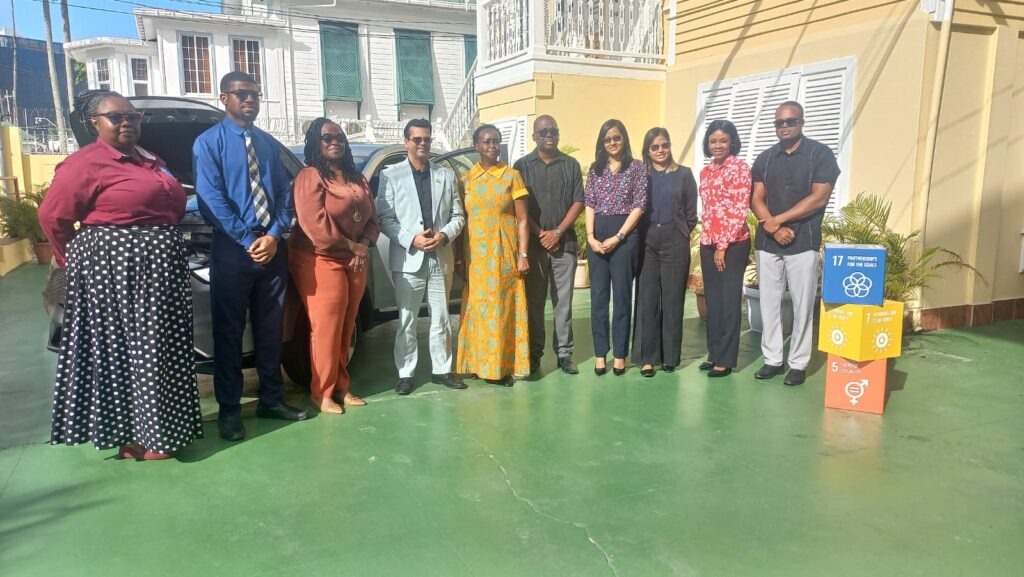
United Nations (UN) Guyana, in partnership with the Joint Sustainable Development Goals (SDG) Fund and the Guyana Energy Agency (GEA), has launched the Just Energy Transition Seed Funding Initiative, which is aimed at advancing Guyana’s transition to a low-carbon transportation sector by promoting electric vehicles and expanding renewable energy infrastructure.
Addressing the launch at UN House in Kingston, the UNDP Officer-in-Charge Nadira Balram said the initiative is a strategic step towards accelerating the shift to cleaner and more sustainable energy solutions in Guyana.
Balram said the US$250,000 programme, which is being funded through the SDG fund, seeks to achieve two key outcomes.
“One being expanding renewable energy infrastructure, where we will see three new solar power electric vehicle charging stations installed around Georgetown. The second component of the programme looks at building human capacity for a just energy transition. A critical component of this initiative will invest technical and vocational training for approximately 20 persons,” the UNDP Officer-in-Charge explained.
Ms. Balram said the impact programme would be far reaching. She explained that by increasing the accessibility of electric vehicles charging stations, the partners are taking tangible steps to reduce green house gas emissions.
“It goes beyond environmental benefits. This initiative will also create green jobs and new economic opportunities. Simply by equipping a new generation of technicians with specialized skills, we are also working to foster a work force that is prepared for a transition to a local carbon society,” she said.

Head of the Guyana Energy Agency (GEA), Dr Mahender Sharma said the programme will build on the foundation laid by the Government. He said the Government has built a total of six charging stations.
It was explained that each of the electric vehicle charging stations will be equipped with a 15kw solar PV panel module, which would be connected to a charger capable of charging two electric vehicles simultaneously.
He said electric vehicles could be charged within 40 minutes in some cases.
“These two technologies will provide a good opportunity to reduce our energy consumption, and promote electric mobility,” he said.
Dr Sharma said the programme “fits nicely” into Guyana’s Local Carbon Development Strategy (LCDS), in particular local carbon transportation.
In 2024, 24 electric vehicles were imported into country.
According to Dr Sharma, there are approximately 224 electric vehicles in the country. He said the country could soon see a proliferation of electric vehicles, as the government team up with its international partners to establish more charging stations, and take steps to bring down the cost of electricity.













You must be logged in to post a comment Login